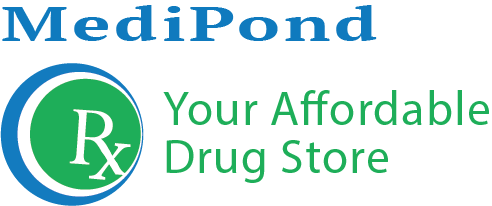glipiZIDE XR Oral Pill
Common Brand Name(s): GLUCOTROL
SKU
glipiZIDE-XR-Oral-Pill
Glipizide is used with a proper diet and exercise program to control high blood sugar in people with type 2 diabetes. It may also be used with other diabetes medications. Controlling high blood sugar helps prevent kidney damage, blindness, nerve problems, loss of limbs, and sexual function problems. Proper control of diabetes may also lessen your risk of a heart attack or stroke. Glipizide belongs to the class of drugs known as sulfonylureas. It lowers blood sugar by causing the release of your body's natural insulin.
Nausea, vomiting, loss of appetite, diarrhea, constipation, upset stomach, gas, headache, and weight gain may occur. If any of these effects persist or worsen, tell your doctor or pharmacist promptly. An empty tablet shell may appear in your stool. This effect is harmless because your body has already absorbed the medication. Remember that your doctor has prescribed this medication because he or she has judged that the benefit to you is greater than the risk of side effects. Many people using this medication do not have serious side effects. Tell your doctor right away if you have any serious side effects, including: signs of infection (such as persistent sore throat, fever), easy bleeding/bruising, stomach pain, yellowing eyes/skin, dark urine, unusual tiredness/weakness, unusual/sudden weight gain, mental/mood changes, swelling hands/feet, seizures. This medication can cause low blood sugar (hypoglycemia). This may occur if you do not consume enough calories from food or if you do unusually heavy exercise. Symptoms of low blood sugar include sudden sweating, shaking, fast heartbeat, hunger, blurred vision, dizziness, or tingling hands/feet. It is a good habit to carry glucose tablets or gel to treat low blood sugar. If you don't have these reliable forms of glucose, rapidly raise your blood sugar by eating a quick source of sugar such as table sugar, honey, or candy, or drink fruit juice or non-diet soda. Tell your doctor right away about the reaction and the use of this product. To help prevent low blood sugar, eat meals on a regular schedule, and do not skip meals. Check with your doctor or pharmacist to find out what you should do if you miss a meal. Symptoms of high blood sugar (hyperglycemia) include thirst, increased urination, confusion, drowsiness, flushing, rapid breathing, and fruity breath odor. If these symptoms occur, tell your doctor right away. Your dosage may need to be increased. A very serious allergic reaction to this drug is rare. However, get medical help right away if you notice any symptoms of a serious allergic reaction, including: rash, itching/swelling (especially of the face/tongue/throat), severe dizziness, trouble breathing. This is not a complete list of possible side effects. If you notice other effects not listed above, contact your doctor or pharmacist. In the US - Call your doctor for medical advice about side effects. You may report side effects to FDA at 1-800-FDA-1088 or at www.fda.gov/medwatch.
Write a Product Review


